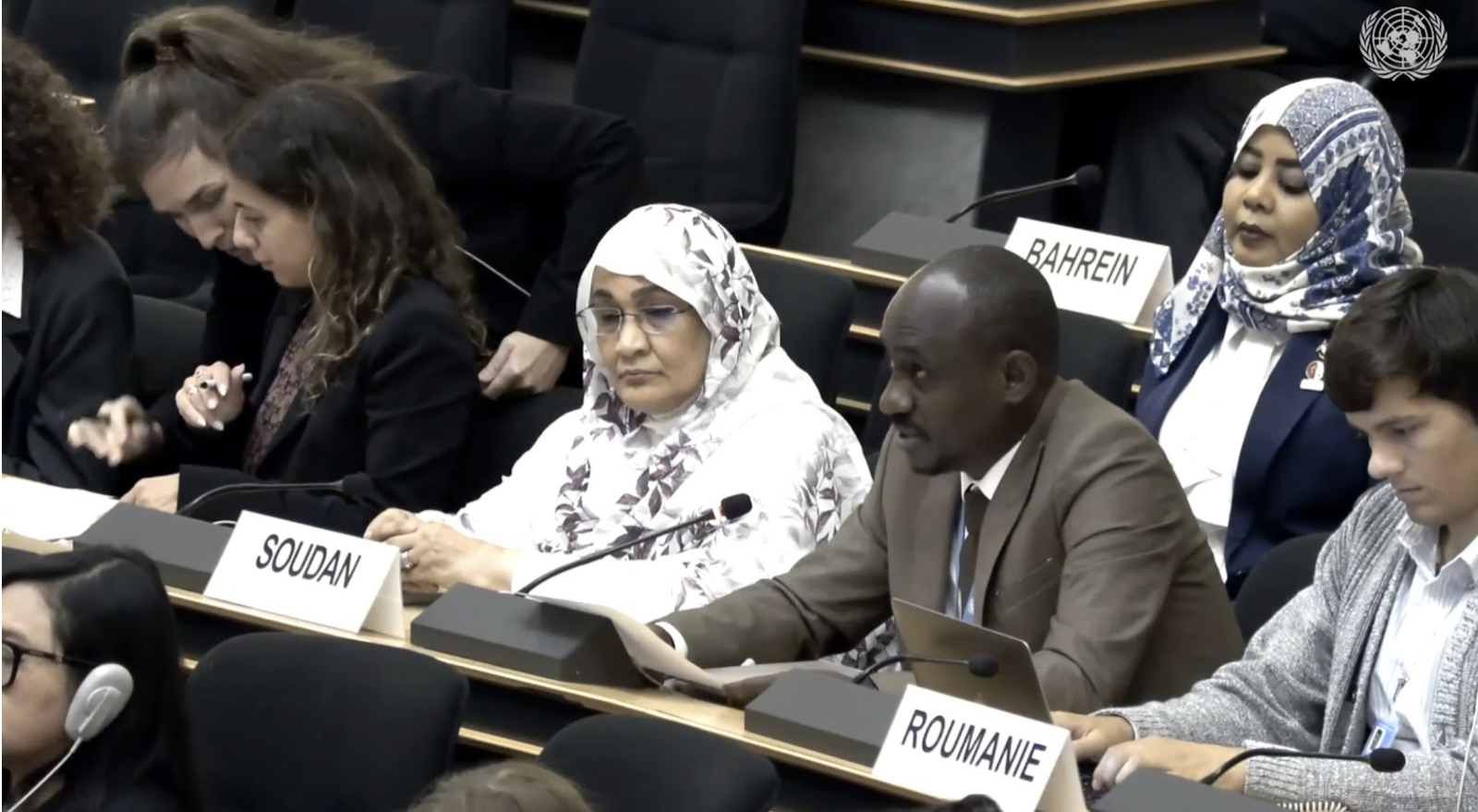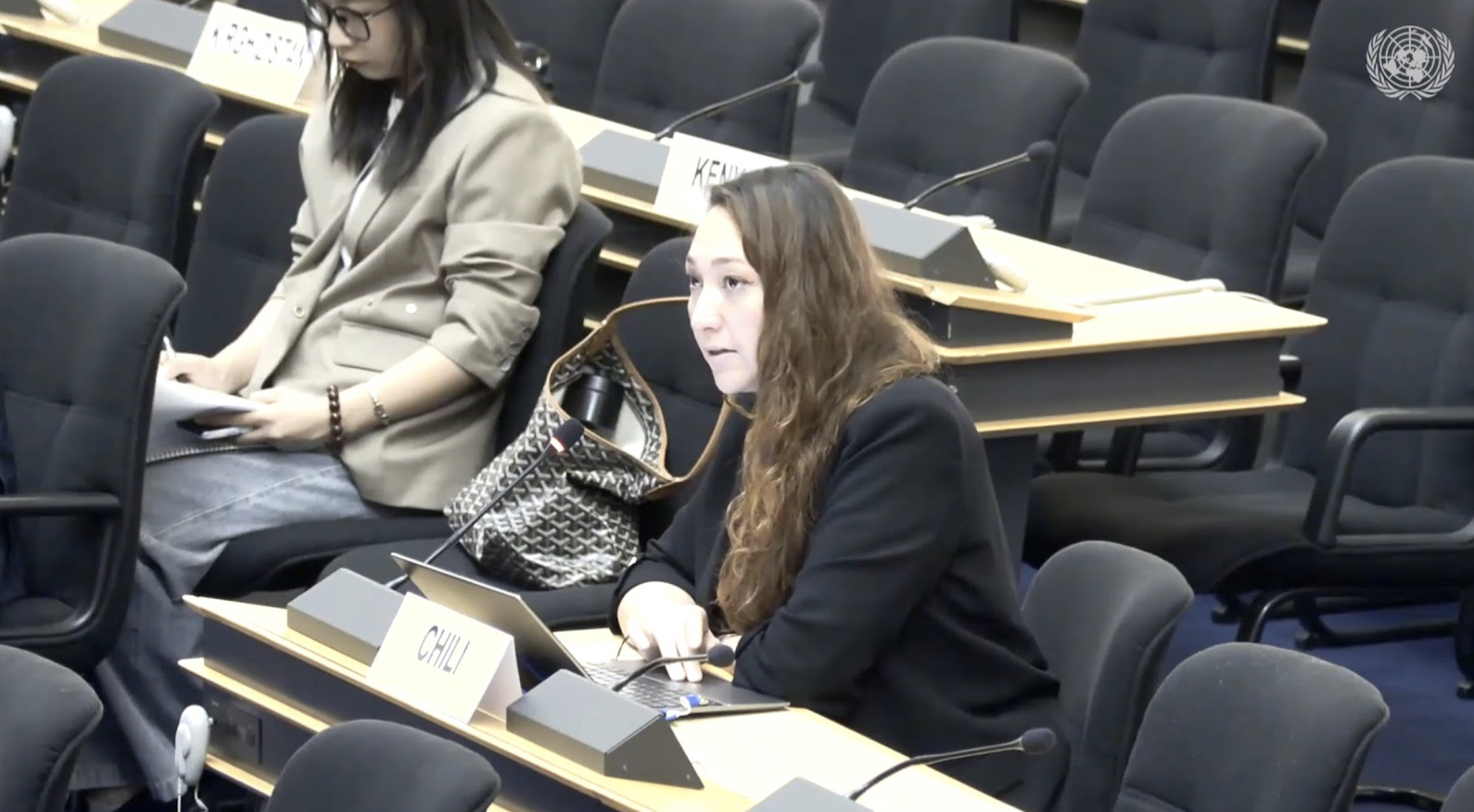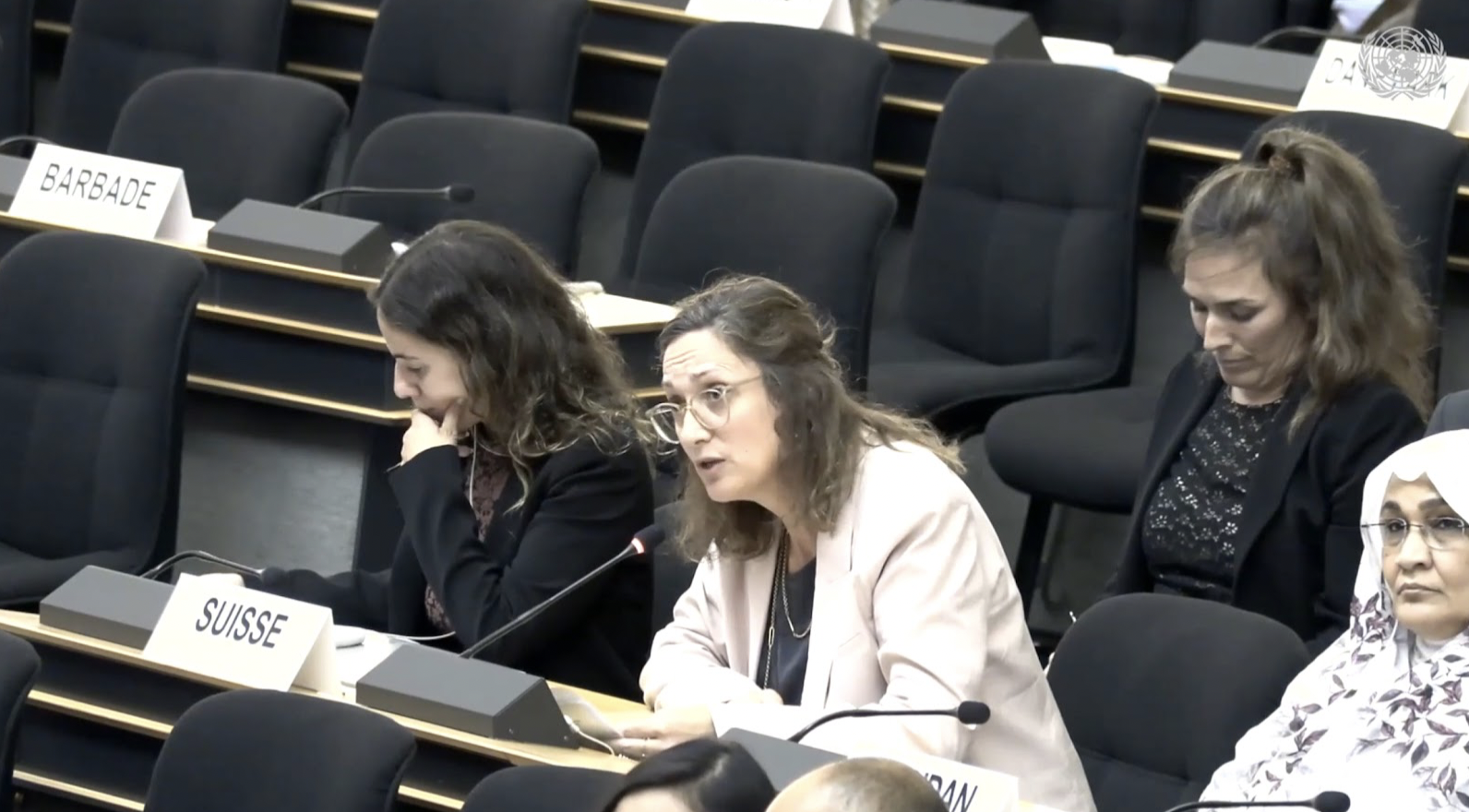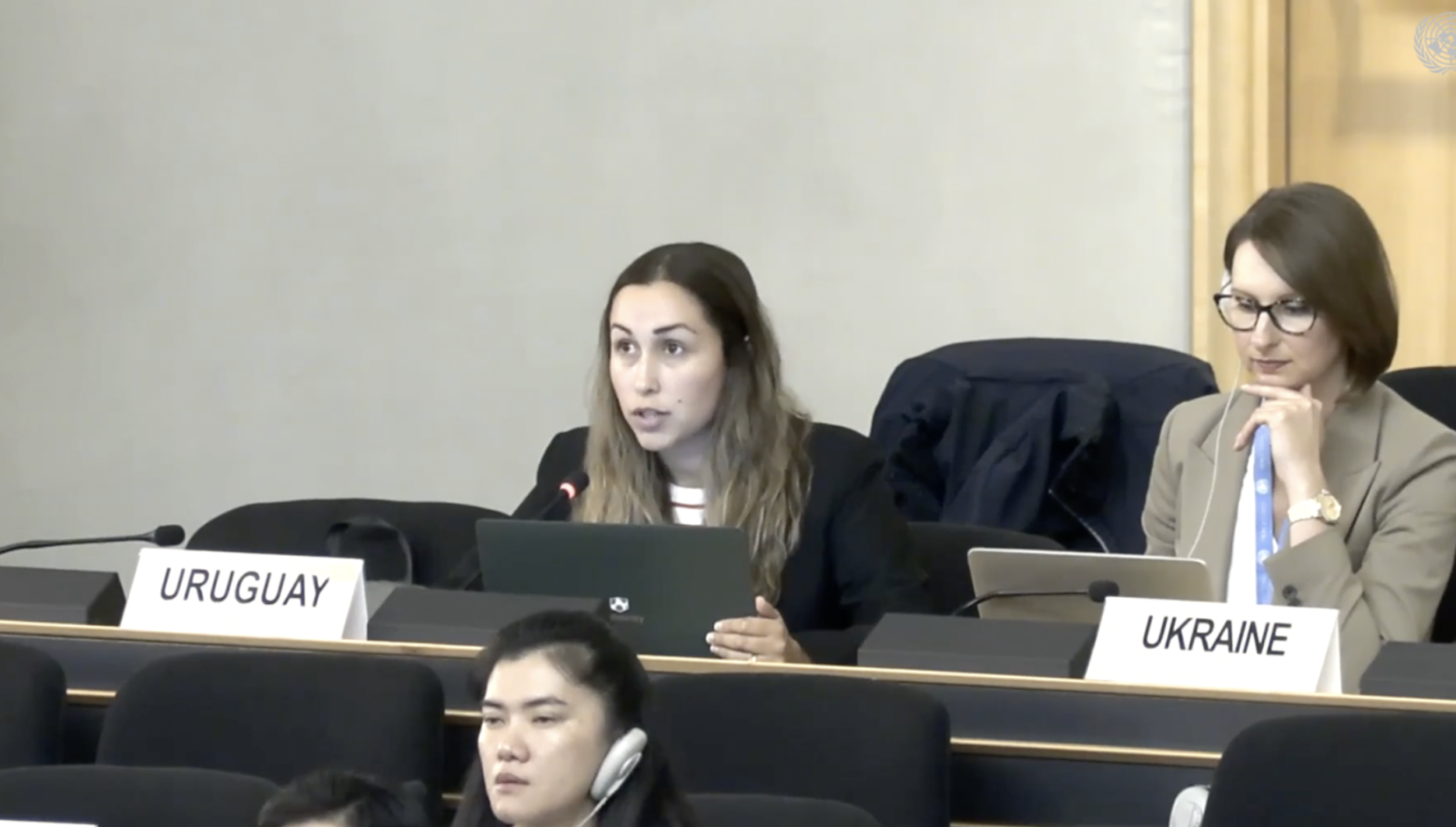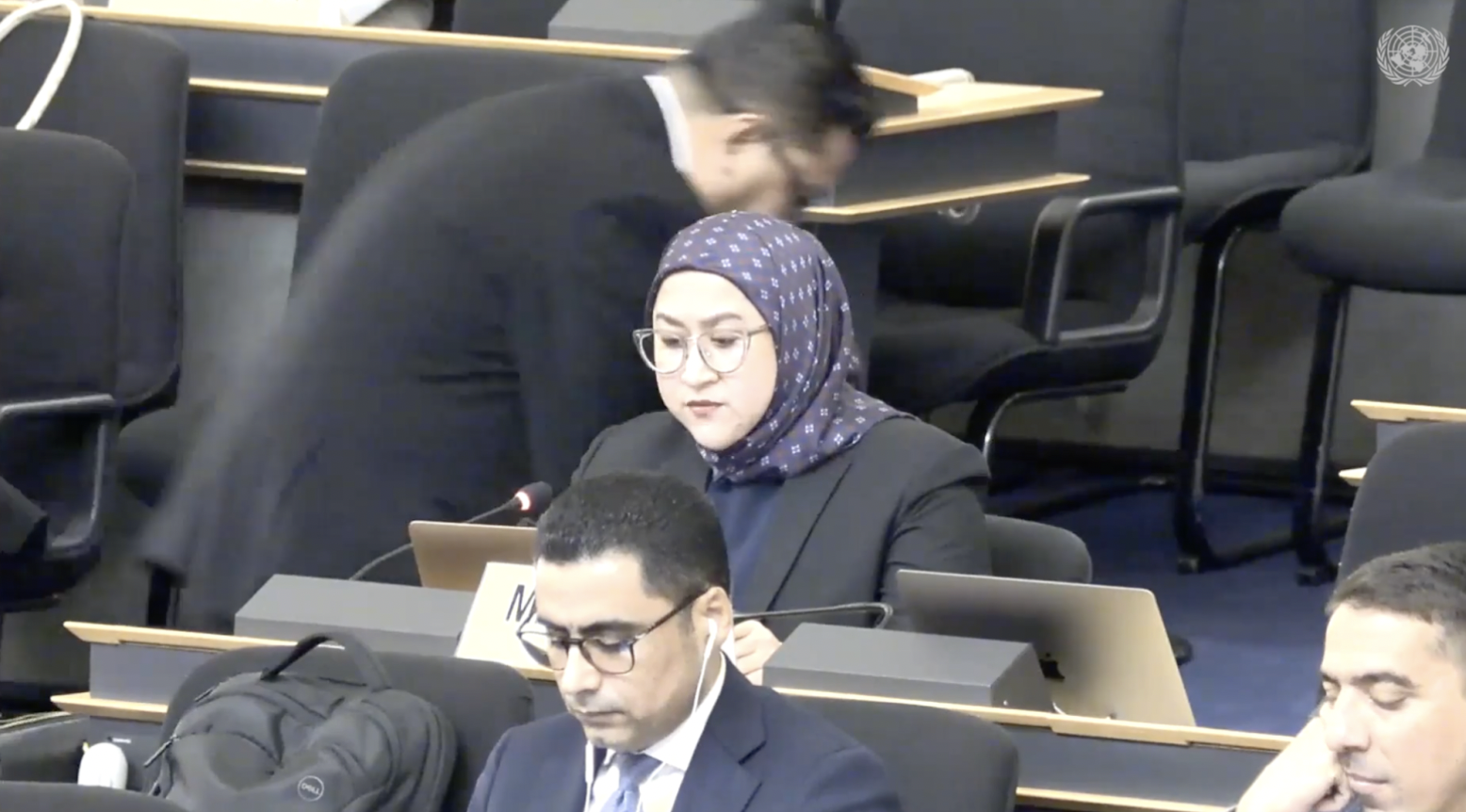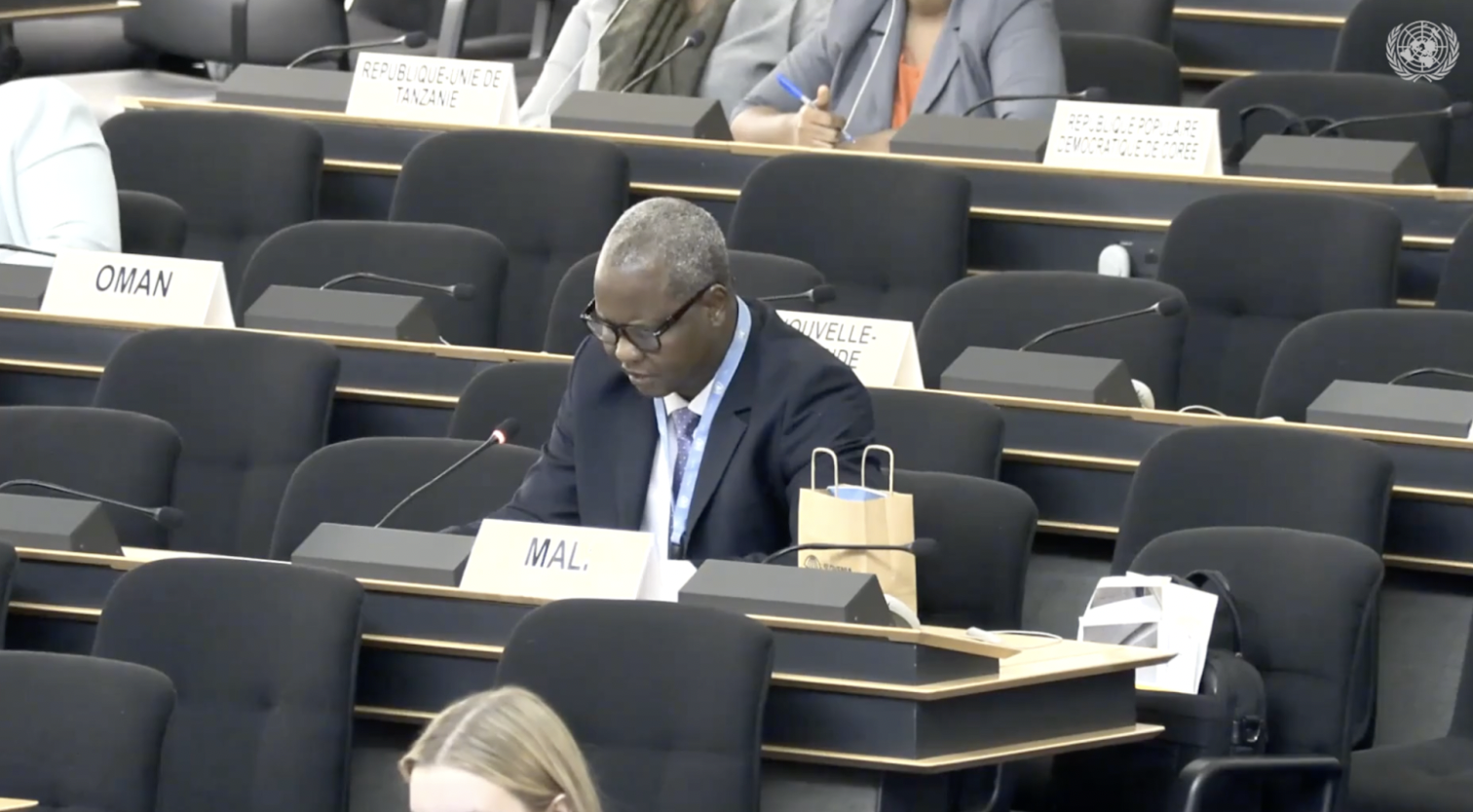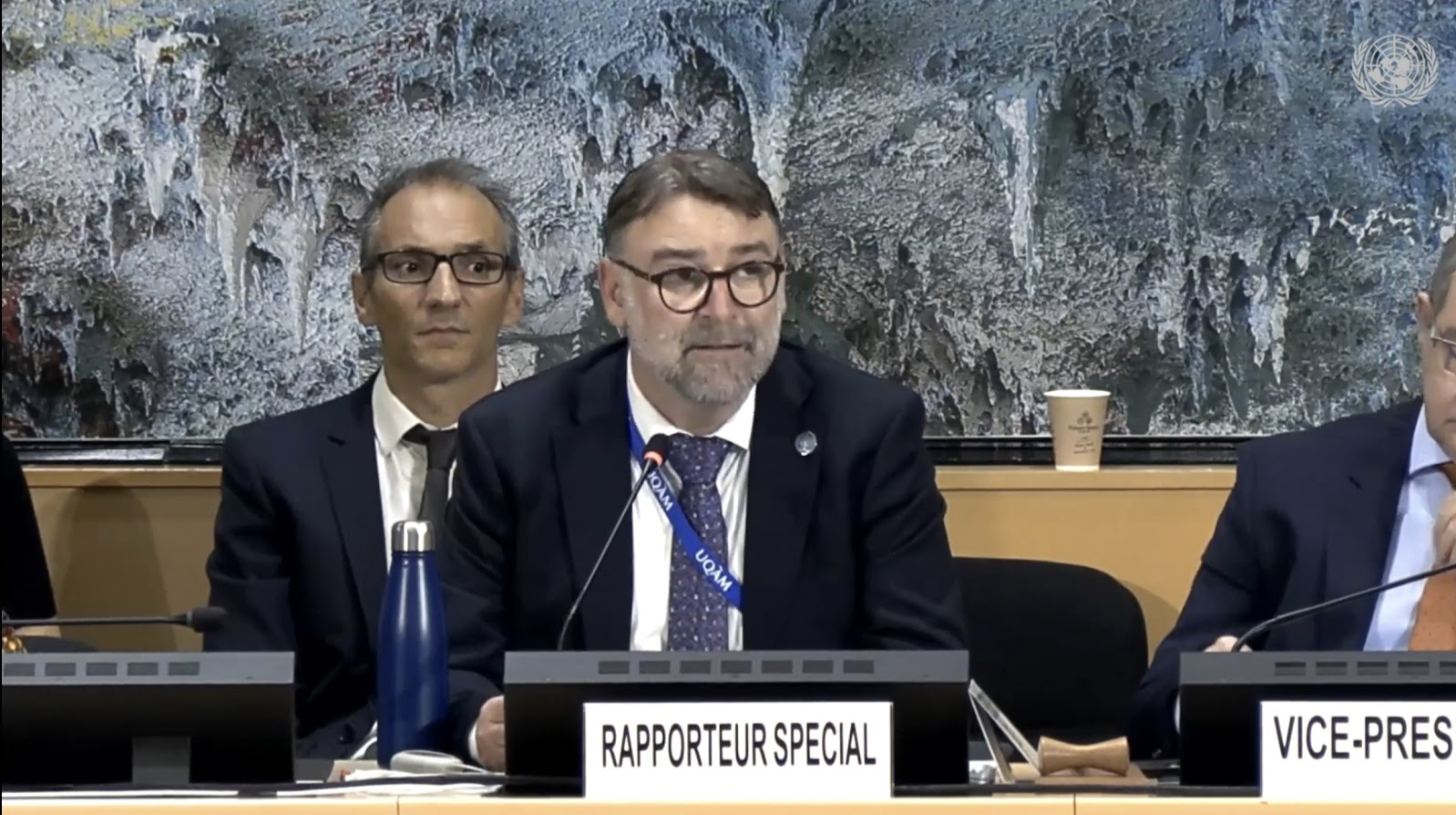
The Role of Truth and Reparation in Upholding Victims’ Rights and Preventing Future Violations
The 60th Session of the Human Rights Council
08 September - 08 October 2025
Item 3: Interactive Dialogue with Special Rapporteur on truth, justice, reparation and guarantee of non-recurrence
10 September 2025
By Haliema Sharfeddine and Sonia Darrieumerlou / GICJ
Executive Summary
The discussion on the promotion of truth, justice, reparation, and guarantees of non-recurrence during the 6th Meeting of the 60th session of the Human Rights Council highlighted the continued relevance and urgency of transitional justice in diverse global contexts. Grounded in Resolution 18/7 and the established mandate of the Special Rapporteur, the session underscored the foundational role of these four pillars in upholding victims’ rights, strengthening the rule of law, and preventing future violations.
The Special Rapporteur, Mr. Bernard Duhaine, presented his findings following a country visit to Brazil. While acknowledging significant progress, including the establishment of the Amnesty Commission and the National Truth Commission, his report pointed to disruptions between 2019 and 2022 that weakened institutional efforts. He called on Brazil to consolidate gains, ensure reparations, advance accountability, and strengthen guarantees of non-recurrence through robust reforms, inclusive policies, and the active involvement of civil society and victims’ groups.
During the interactive dialogue, Brazil reaffirmed its commitment to democratic principles and outlined recent institutional developments aimed at addressing past abuses. Other delegations echoed the importance of truth-seeking, preservation of archives, inclusive reparations, and international cooperation. The European Union stressed the need for gender-sensitive approaches and tackling misinformation. Sudan and South Africa emphasized the role of documentation in ongoing and post-conflict settings. Chile and the State of Palestine highlighted the urgency of protecting journalists and media infrastructure in conflict zones. Switzerland focused on civil society’s role in preserving critical documentation.
Background
The pillars of truth, justice, reparation, and guarantees of non-recurrence form the foundation of effective transitional justice mechanisms and are essential to ensuring accountability, redress for victims, and the prevention of future violations. These measures, when implemented in a holistic and victim-centred manner, contribute to sustainable peace, reconciliation, and the strengthening of the rule of law. The Human Rights Council has repeatedly reaffirmed the importance of these pillars, including through Resolution 18/7, which established the mandate of the Special Rapporteur to examine best practices, challenges, and gaps in the implementation of comprehensive transitional justice frameworks.
In recent years, numerous contexts, both post-conflict and those addressing historical injustices, have demonstrated the continued relevance and urgency of transitional justice. Persisting challenges such as impunity, insufficient reparations, limited victim participation, and weak institutional reforms have impeded meaningful progress in several countries. In Syria, ongoing issues including enforced disappearances, widespread torture, and lack of accountability for grave violations continue to hinder reconciliation and justice. In Palestine, protracted occupation and unresolved grievances compound the difficulties in realizing effective reparations and guarantees of non-recurrence, while in Iraq, sectarian violence and political instability pose significant obstacles to implementing transitional justice measures. Likewise, in several African countries, including the Democratic Republic of Congo and South Sudan, cycles of conflict, displacement, and mass atrocities underscore the critical need for comprehensive truth-seeking and reparation efforts, alongside institutional reforms to prevent recurrence.
Additionally, emerging issues such as digital misinformation, restricted access to archives, and the long-term impacts of colonial legacies have further underscored the need for inclusive, gender-sensitive, and culturally appropriate approaches. The Human Rights Council provides a critical forum to assess these developments, support affected populations, and guide states in fulfilling their international obligations.
Summary of Expert’s Report
The Special Rapporteur on the promotion of truth, justice, reparation and guarantees of non-recurrence, Mr. Bernard Duhaine, underscores in his report following his visit to Brazil, both progress and persisting challenges in addressing the legacies of past human rights violations committed during the period of military dictatorship. He notes that Brazil has established important frameworks and institutions, including the Amnesty Commission and reparation programmes, which constitute valuable advances in the recognition of victims’ rights. At the same time, the report highlights that the functioning of these mechanisms has been uneven and, in some instances, particularly between 2019 and 2022, severely disrupted. The Rapporteur stresses that measures aimed at truth-seeking, accountability, reparation and memorialisation have suffered from discontinuities, insufficient resources and political fluctuations, thereby affecting their sustainability and credibility.
The Rapporteur calls upon the State to strengthen its commitment to transitional justice by consolidating the work of the Amnesty Commission, ensuring timely and comprehensive reparations to victims, advancing judicial accountability, and fostering inclusive policies of memorialisation. He further emphasises the importance of guaranteeing non-recurrence through robust institutional safeguards, legal reforms, public education and the preservation of historical memory. Civil society and victims’ groups are recognised as essential actors in this process, and the report stresses that their voices must be central to policy design and implementation. In concluding, the Special Rapporteur urges Brazil to redouble its efforts to fully address past violations and to secure the rights of victims, thereby reinforcing democracy, the rule of law and the protection of human rights for all.
Summary of the Interactive Dialogue
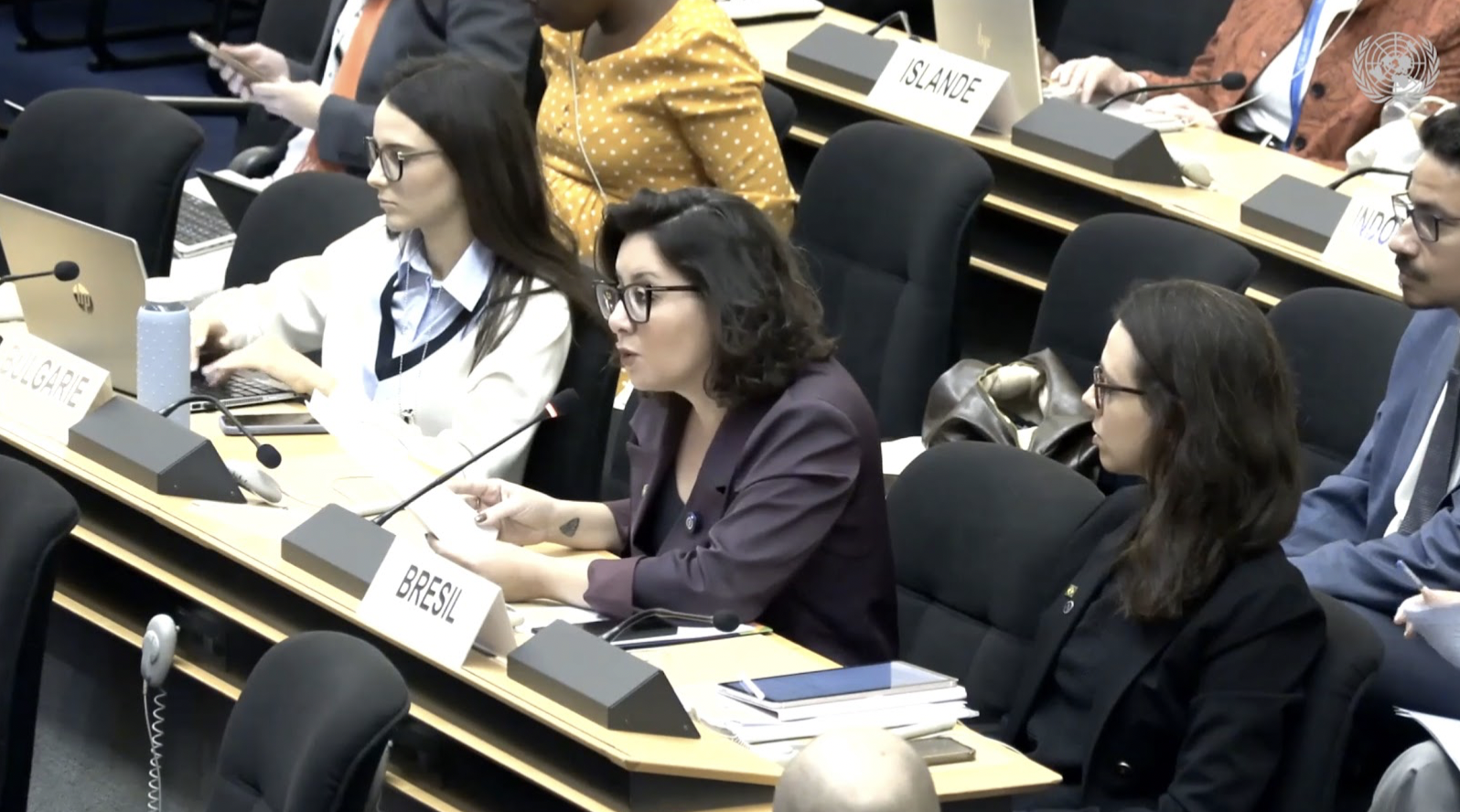
Brazil reiterated its firm commitment to democratic principles and the full implementation of transitional justice measures. The delegation recalled the country’s past under military dictatorship between 1964 and 1985, during which widespread human rights violations occurred. In response, Brazil adopted a federal constitution that includes key provisions to uphold memory, truth, and justice. Since then, the country has institutionalized mechanisms to offer reparations, particularly through the Amnesty Commission, which has examined over 80,000 requests and granted both financial compensation and formal State apologies to victims. The establishment of the National Truth Commission in 2011 marked the first official investigation into crimes committed during the dictatorship, culminating in an international report in 2014. In 2023, the current administration created a Special Office for Democracy, Memory, and Truth under the Ministry of Human Rights and Citizenship. In 2024, Brazil reactivated the special commission on political deaths and disappearances, officially recognizing victims’ deaths as violent and State-led. Efforts to identify remains at clandestine burial sites continue. Brazil emphasized the need for collective political amnesties for marginalized communities, including Indigenous peoples, rural workers, and immigrant groups, and recognized the importance of international cooperation in advancing transnational justice.
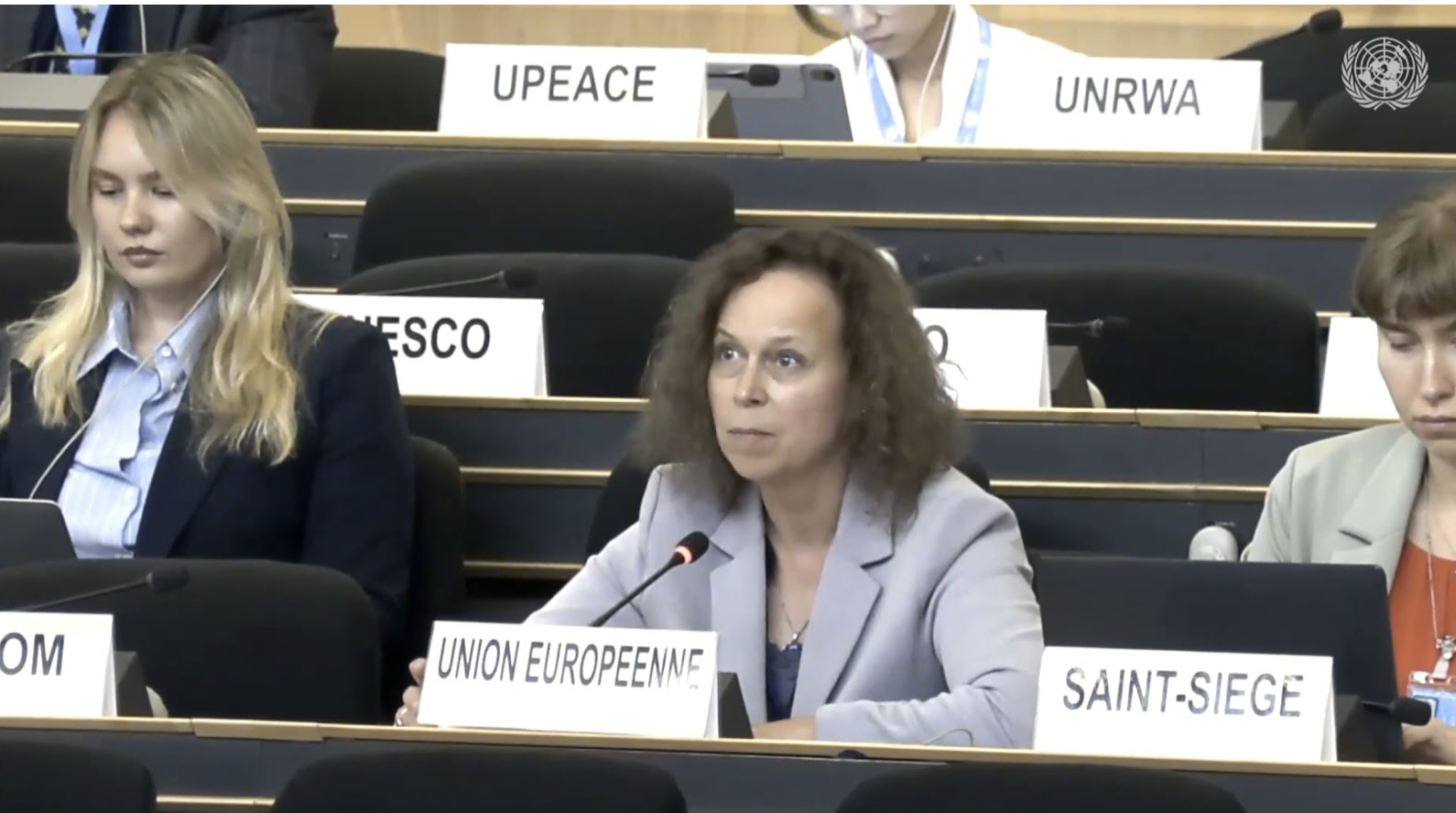
The European Union emphasized the centrality of documentation, truth, reparations, and guarantees of non-recurrence within transitional justice frameworks. The EU reaffirmed its support for mechanisms that are inclusive, gender-responsive, and anchored in the active participation of victims. The delegation underlined the necessity of ensuring access to archives, promoting transparency, and preserving evidence in line with international legal standards. Recognizing current challenges, the EU highlighted the transformative potential of innovative technologies to support the documentation of human rights abuses, particularly during early stages of political transitions. Additionally, the EU emphasized the importance of tackling misinformation and disinformation in digital spaces, as well as mainstreaming a gender perspective throughout the design and implementation of transitional justice processes. The EU called for comprehensive truth and reconciliation efforts to build democratic, peaceful, and resilient societies and reiterated its ongoing financial and technical support for global transitional justice initiatives.
Sudan expressed its appreciation for the Special Rapporteur’s recommendations and highlighted the urgency of implementing transitional justice in crisis-affected contexts. The delegation focused on the necessity of rigorous documentation of violations to ensure accountability, particularly in countries experiencing ongoing conflict or instability. Referring to the national context, Sudan underscored the devastating impact of violence carried out by the Rapid Support Forces (RSF), including attacks on state institutions and civilian populations. To address these grave violations, Sudan established a mission tasked with investigating crimes committed by the RSF and ensuring redress for victims. The delegation affirmed that proper collection of evidence, especially in volatile environments, is essential to allow victims’ complaints to be processed and addressed. Sudan called for greater international support for national documentation efforts and reiterated its commitment to truth, justice, and reparation as indispensable components of peacebuilding.
Chile reaffirmed the importance of preserving historical memory and the role of transitional justice mechanisms in rebuilding the social fabric and strengthening democratic institutions. The delegation cited the country’s experience with truth commissions, which contributed to establishing a shared understanding of past atrocities and promoting national reconciliation. Chile emphasized that such mechanisms must be inclusive, victim-centered, and transparent. The delegation also expressed deep concern over the deteriorating situation of journalists and media professionals in Gaza, noting that over 250 journalists have been killed, making it one of the deadliest conflicts for the profession in recent memory. Chile warned that the ongoing blockade and targeted attacks on media infrastructure not only violate international humanitarian law but also undermine the international community’s ability to document crimes and deliver justice. The delegation called for technical assistance to ensure the protection of journalists and enable continued documentation of human rights violations in conflict zones.
Switzerland highlighted the critical role of civil society in transitional justice processes, particularly in documenting violations and preserving sensitive evidence. The delegation emphasized that local civil society actors, given their proximity to affected communities and knowledge of local contexts, are often best positioned to collect and safeguard material and testimonial evidence. Switzerland underscored the importance of acting swiftly to prevent the loss or destruction of crucial documentation, especially in unstable environments. The delegation noted that Switzerland has, upon request from partner countries, preserved digital backup copies of sensitive archives from Colombia, Guatemala, and the Marshall Islands. This practice ensures that documentation remains protected and accessible for future peacebuilding and accountability efforts. Switzerland also pointed to its collaboration with the Archivolte Institute, which provides access to historical archives, including materials related to the Israeli–Palestinian conflict, for use by policymakers, civil society, and researchers. Finally, Switzerland posed a question to the Special Rapporteur on how to further strengthen cooperation between governments and civil society in protecting and preserving such critical documentation.
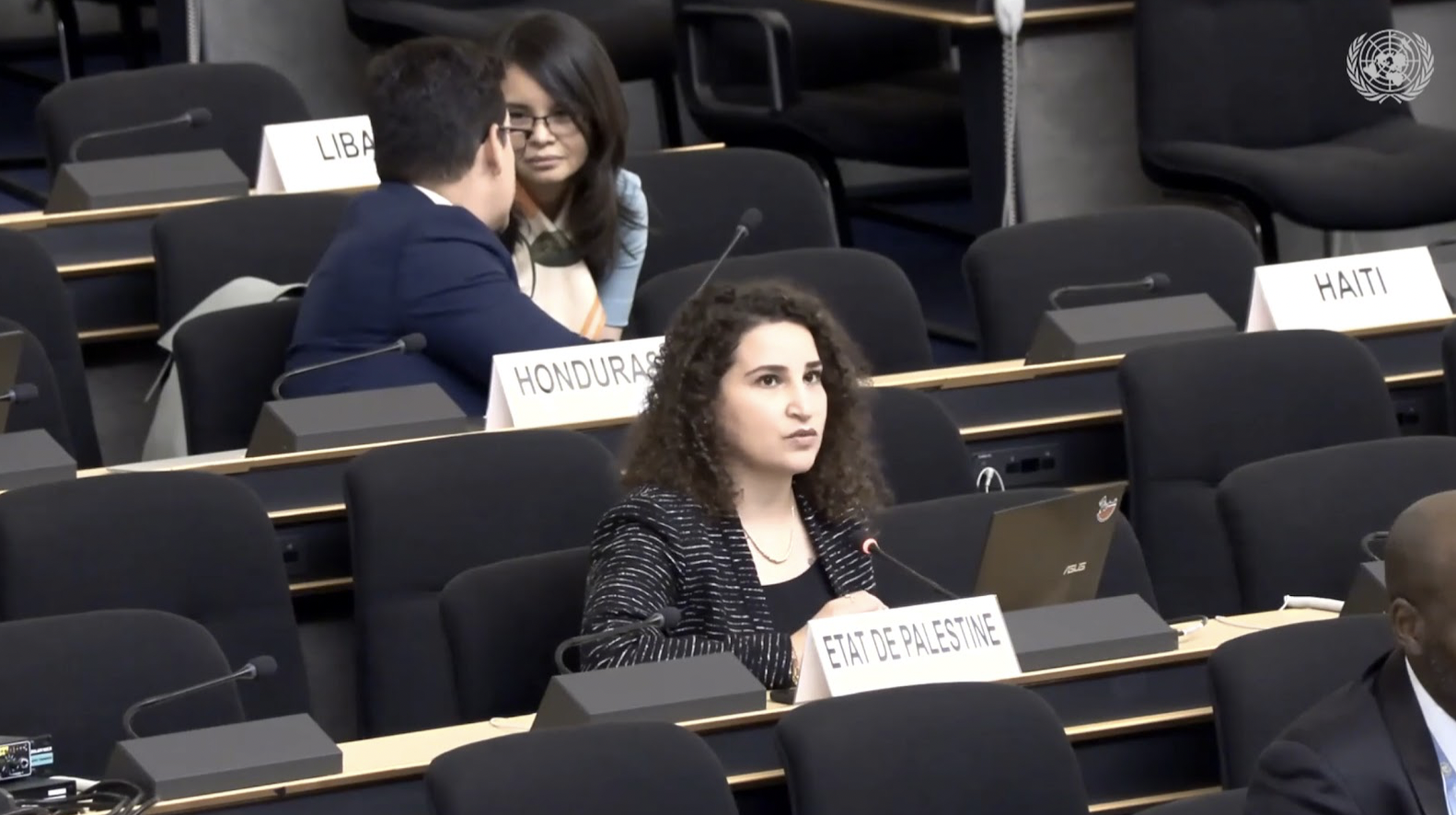
The State of Palestine delivered a strong intervention underscoring the critical importance of documentation as the foundation of truth, justice, and non-recurrence. The delegation described what it characterized as an ongoing genocide, with systematic attacks on educational and cultural institutions, media infrastructure, and archives. It condemned what it said were deliberate attempts by Israel to destroy evidence, including by bombing universities, media offices, and even targeting journalists. Palestine stated that international and local journalists are being blocked or deliberately killed to prevent documentation of atrocities. The delegation stressed that civil society organizations that attempt to expose violations are being sanctioned or delegitimized by certain States, undermining the right to truth and facilitating impunity. The delegation made a strong appeal for the international community to guarantee the protection of archives, the safety of journalists, and the integrity of institutions collecting evidence. For Palestine, the right to truth is not theoretical, it is a matter of survival, essential to the dignity of victims and the future of its people.
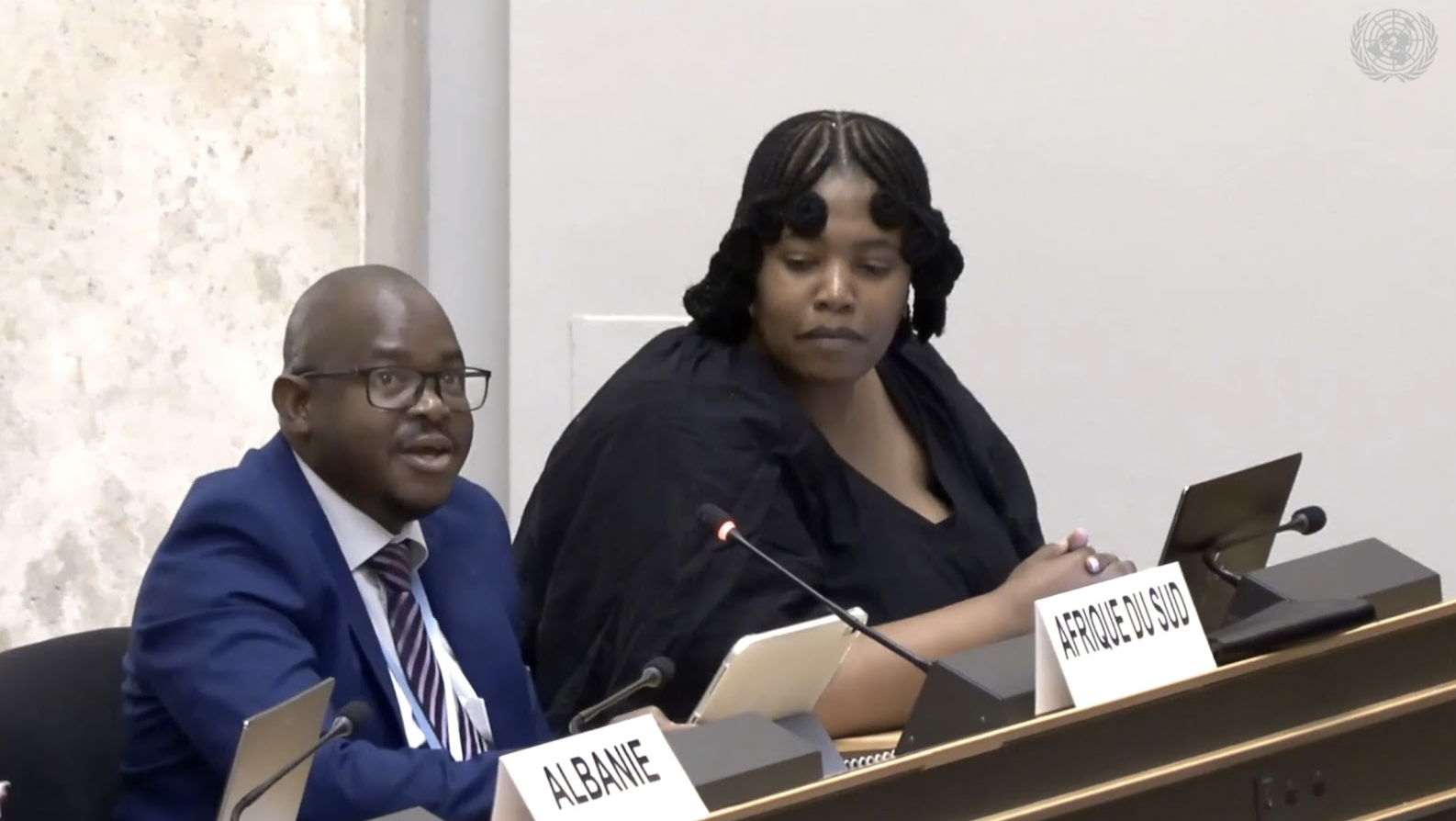
South Africa reflected on its own transitional justice experience, notably through the establishment of the Truth and Reconciliation Commission in 1996. The delegation stressed that the documentation of past human rights violations served not only to ensure accountability but also to promote healing, national unity, and the rule of law following decades of apartheid. South Africa underscored the importance of memory and reparations initiatives, as well as the need for guarantees of non-recurrence. These efforts were not merely retrospective but also aimed at preventing future abuses and building a democratic and inclusive society. The delegation reaffirmed the importance of international cooperation and the contributions of global partners in supporting transitional justice efforts. South Africa concluded by stressing that States must take all necessary judicial and institutional measures to promote truth, justice, and reconciliation as essential pillars of sustainable peace and development.
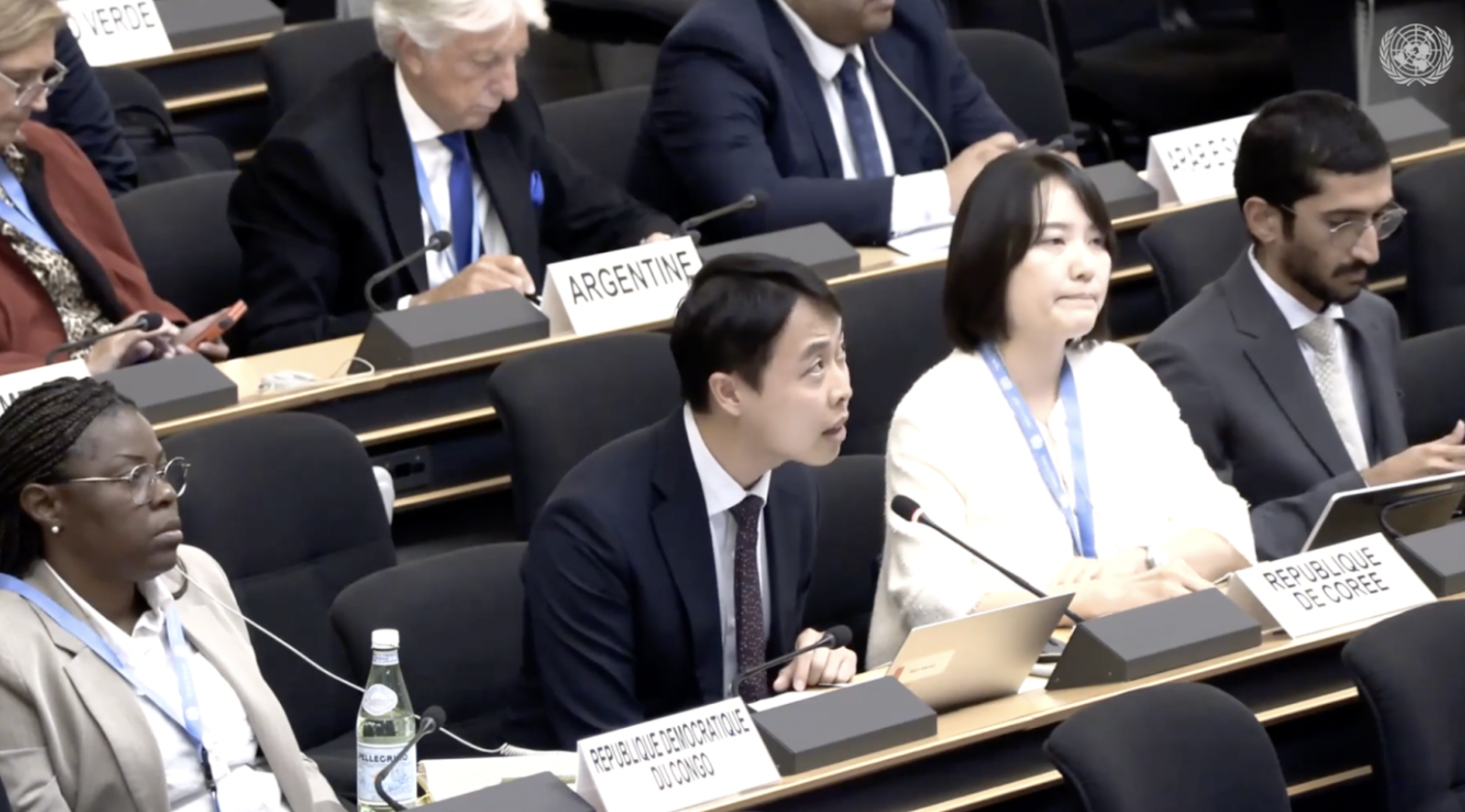
The Republic of Korea emphasised the importance of preserving evidence through effective archiving, supported by technological innovation, as essential to realising the right to truth and ensuring justice, reparation, and non-recurrence. The delegation drew on its national experience in safeguarding historical memory, recalling that the archives of the May 18th Democratic Uprising in Gwangju and the Jeju April 3rd Incident are inscribed in UNESCO’s Memory of the World Register. It further announced ongoing efforts to establish a Third Truth and Reconciliation Commission, which has played a central role in social integration by investigating past state violence through a victim-centred approach. Addressing the issue of “comfort women,” Korea reaffirmed its determination to restore victims’ honour and dignity and to prevent the recurrence of wartime sexual violence. Concluding, the delegation reiterated its strong commitment to truth, justice, reparation, and guarantees of non-recurrence, and voiced continued support for the Special Rapporteur’s mandate.
Uruguay placed particular emphasis on the centrality of victims and documentation, as well as the essential role played by civil society and victims’ associations. The delegation highlighted national progress, including the investigation and prosecution of serious human rights violations, early initiatives to place transitional justice on the public agenda, the creation of a reparations framework, and the consolidation of memory policies and guarantees of non-repetition. At the same time, it acknowledged continuing challenges, pointing to obstacles related to statutes of limitations for crimes committed during the civil-military dictatorship and the unresolved issue of access to archives. Uruguay reaffirmed its willingness to fully comply with the Special Rapporteur’s mandate and to contribute constructively to international efforts aimed at making truth, justice, reparation, and guarantees of non-repetition tangible realities for all victims.
Malaysia underscored the importance of truth, justice, reparation, and guarantees of non-recurrence as key pillars of accountability and reconciliation. The delegation stressed that transitional justice measures must be tailored to each country’s unique context and implemented nationally with due regard to social, political, and economic realities. It concurred with the Special Rapporteur that the documentation of serious violations of human rights and international humanitarian law is essential to the credibility and effectiveness of transitional justice. Documentation and archiving, it noted, should be prioritised from the outset, not only as a technical exercise but as a human rights imperative. Turning to the situation in Gaza, Malaysia condemned atrocities committed against Palestinians and criticised Israel’s obstruction of accountability through the destruction and blocking of documentation efforts. It called for unimpeded access for UN investigative mechanisms and fact-finding missions to the Occupied Palestinian Territory and encouraged the Special Rapporteur to coordinate with other relevant mandates, including the Commission of Inquiry and the Special Rapporteur on the situation of human rights in the OPT. Concluding, Malaysia highlighted the need for coherence and complementarity in documenting violations and ensuring accountability for victims.
Mali expressed concern over the persistent challenges that hinder the collection of information on serious human rights violations and breaches of international humanitarian law. The delegation pointed to insecurity, terrorism, transnational crime, delays in data collection, and the destruction or falsification of archives as major obstacles to effective documentation. To address these issues, Mali established a Truth, Justice and Reconciliation Committee with a dual mandate to conduct participatory and inclusive investigations into serious violations and to formulate proposals for reparations. The delegation reported that the committee has already dealt with around 16 emblematic cases. Additional measures include the creation of a new authority to support victims and the establishment of a centre dedicated to promoting peace and unity, with a focus on preserving the memory of grave violations committed during the country’s crises. Mali concluded by affirming that institutionalising the systematic collection of data on human rights violations is a decisive factor in ensuring truth, justice, reparation, and guarantees of non-repetition.
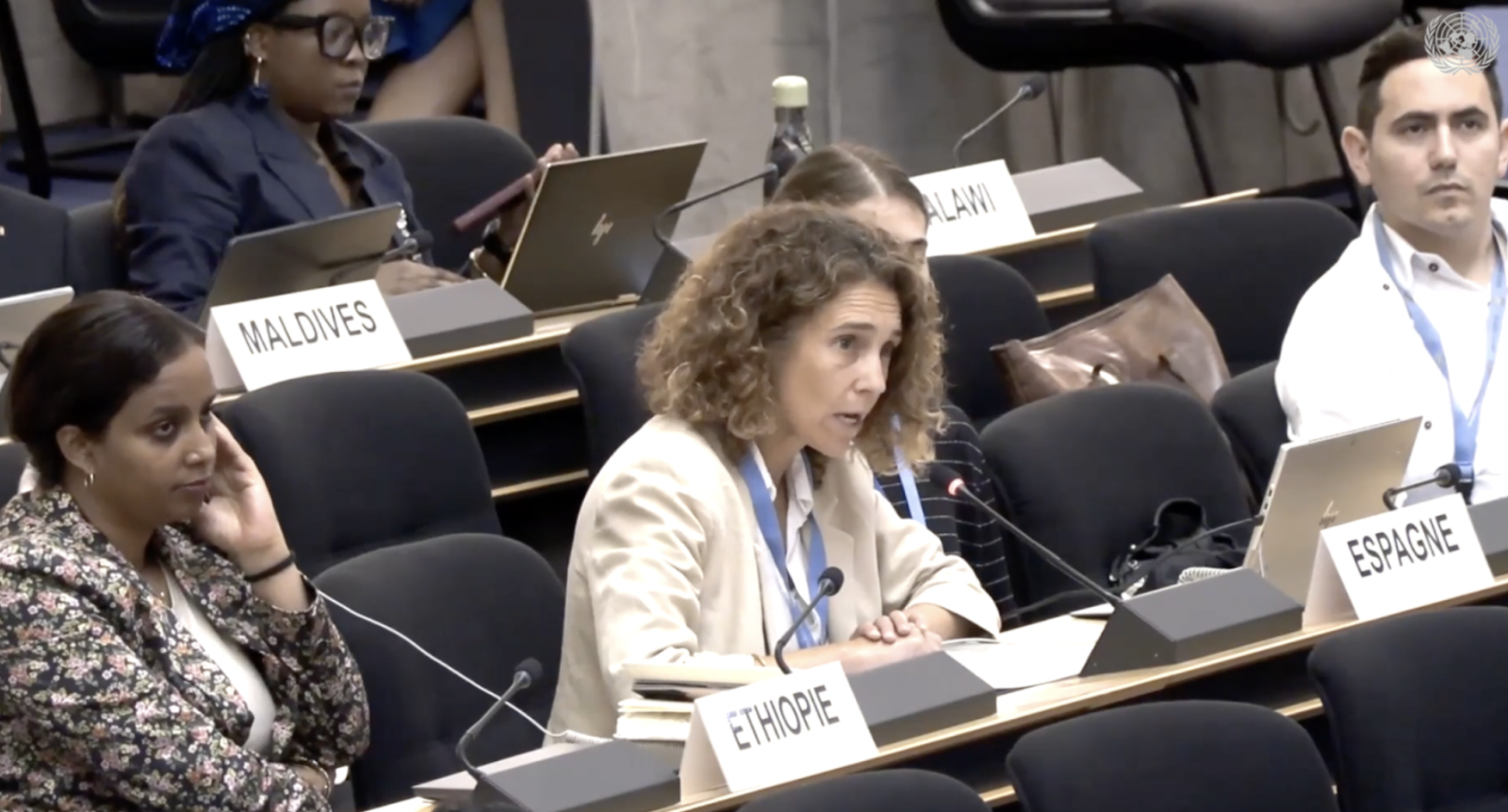
Spain associated itself with the statement of the European Union and stressed that human rights violations must be prevented, and when they occur, they must be documented from the outset to ensure accountability and memory. The delegation underlined that impunity cannot be tolerated and highlighted the essential role of international justice, international human rights mechanisms, and national frameworks. Turning to Gaza, Spain called for the prosecution of those responsible for atrocities and expressed solidarity with the Palestinian people, stressing the importance of access to territory, victims’ testimonies, and impartial international investigations. The delegation also reflected on its domestic experience, commemorating 50 years of freedom and noting that democratic memory laws, including access to archives, have helped shed light on the dictatorship and provided a tool for transitional justice for new generations. Finally, Spain welcomed the Special Rapporteur’s integration of a gender perspective into documentation processes and asked how the training of technical experts in this area could be further improved.
Concluding Remarks
In his concluding remarks, Special Rapporteur Bernard Duhaime thanked all delegations and stakeholders who had engaged with his reports during the dialogue. Responding to Spain’s question on education and training, he pointed to existing international standards such as the Minnesota Protocol, the Istanbul Protocol, and the Méndez Principles, as well as the contributions of civil society organisations and academia, as valuable resources in this field. Addressing the concerns raised regarding Gaza, Mr. Duhaime reiterated the importance of supporting international initiatives, including the Independent International Commission of Investigation mandated by the Human Rights Council, as well as proceedings before the International Court of Justice and the International Criminal Court. He stressed that civil society organisations, which continue to face sanctions, also play an essential role in documenting violations. He concluded by noting that the absence of prior transitional justice initiatives in the region underscores the urgent need for such processes once the conflict ends, but emphasised that the conflict itself must come to an end without delay.
GICJ Position
Geneva International Centre for Justice (GICJ) stresses that documentation is the cornerstone of transitional justice and must remain prompt, inclusive, victim-centred, and gender-sensitive. GICJ expresses deep concern over deliberate efforts to obstruct documentation, including the destruction of archives, intimidation of witnesses and the targeting of journalists, particularly in Gaza. Such actions not only deny victims their right to truth but also perpetuate impunity.
GICJ calls on all states to safeguard archives, guarantee access to information, and protect the civil society actors who often risk their lives to document violations. We urge the international community to reinforce investigative mandates, support digital preservation efforts and ensure that documentation leads to accountability and reparations. Transitional justice is not a technical exercise but a human rights imperative. Only by protecting truth and holding perpetrators to account can societies achieve reconciliation and guarantees of non-repetition.




